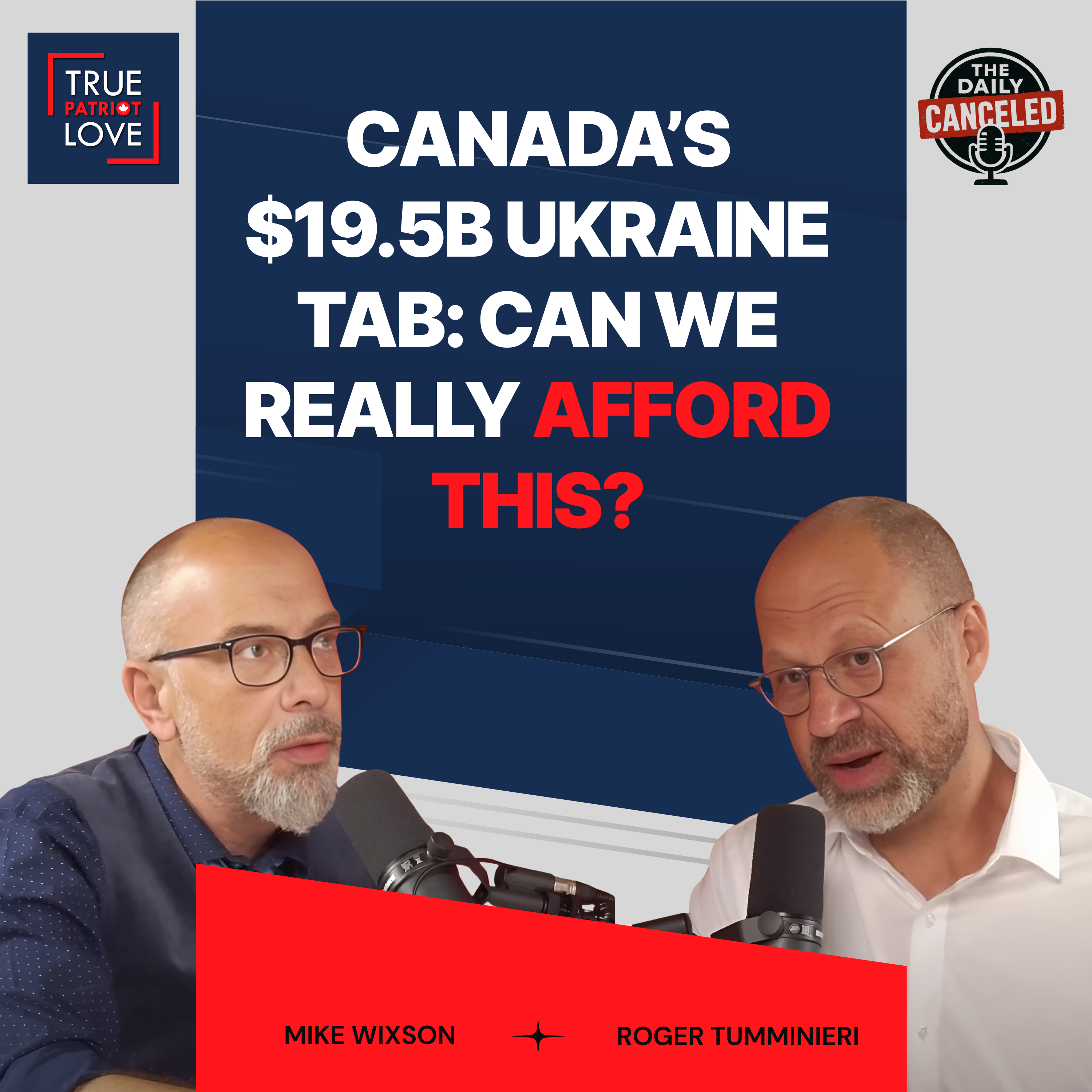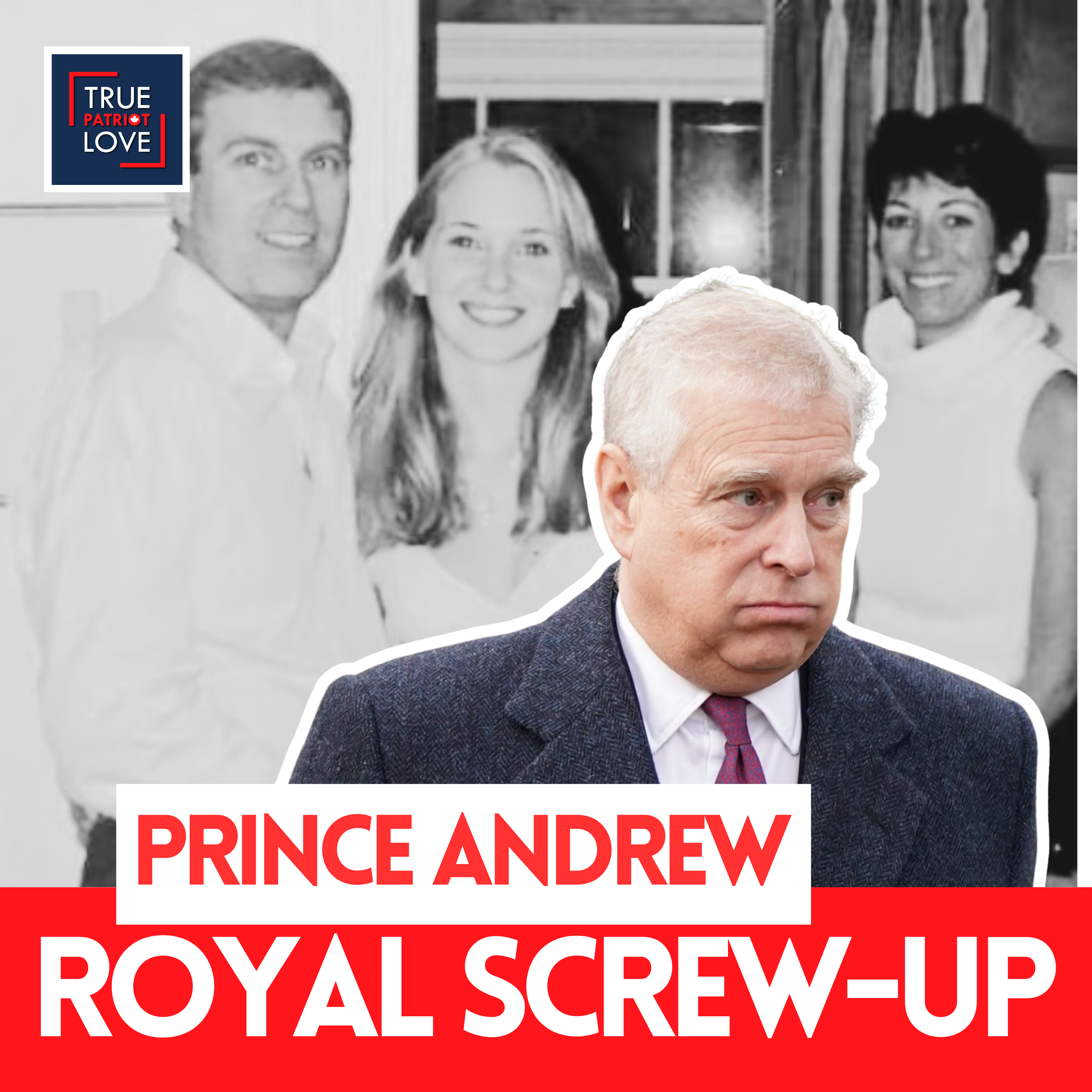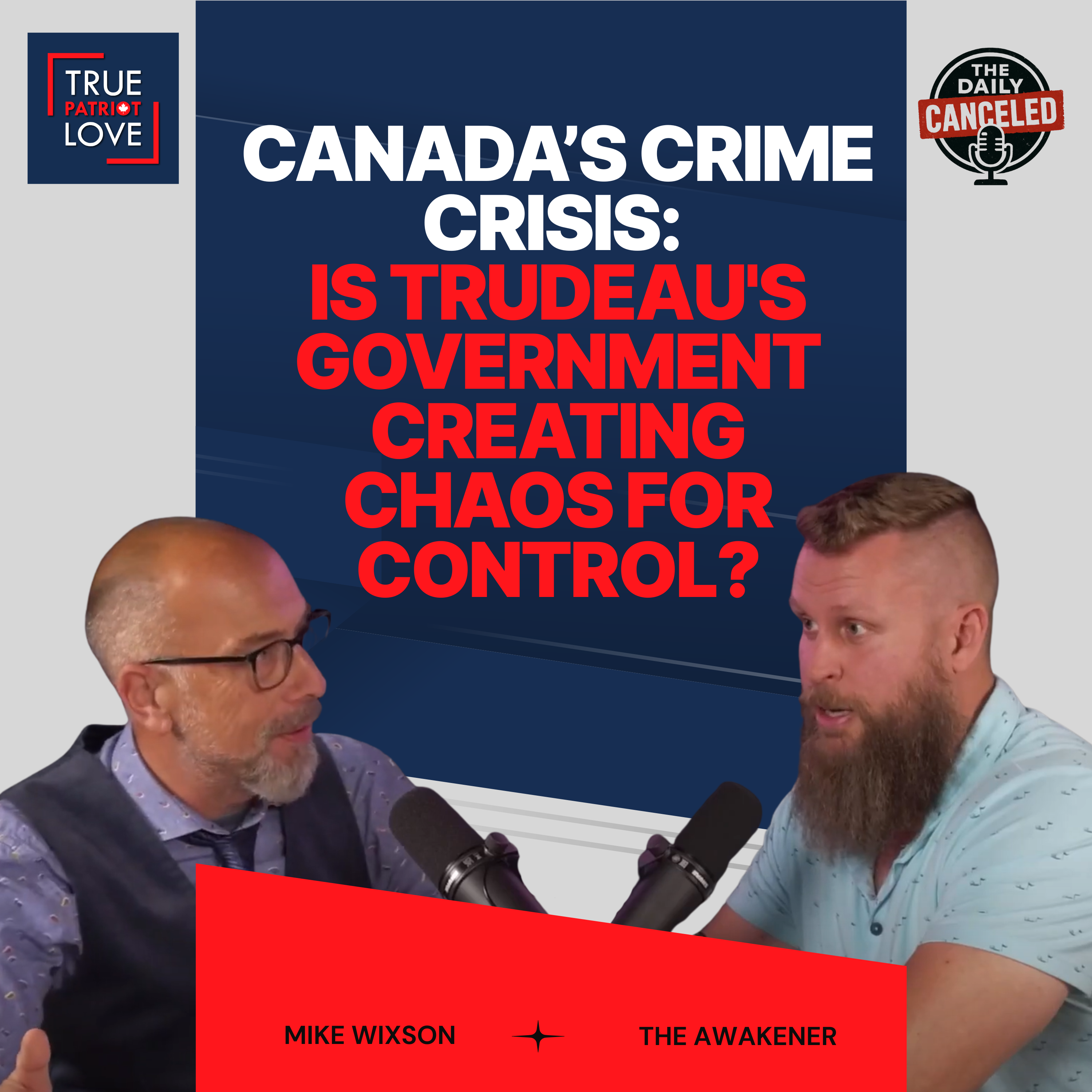Episode Transcript
[00:00:00] Speaker A: Earlier this week, Anthony Furey posted a column about municipal tax in Toronto and Olivia Chao's focus on it. And we're going to talk to Anthony about that today.
Anthony, thanks so much for joining us to talk about this.
[00:00:18] Speaker B: Hey, good to be here.
[00:00:21] Speaker A: Is this an unusual thing to occur in Toronto for the mayor to say, okay, we need to apply a municipal tax in this manner?
[00:00:30] Speaker B: Well, I certainly think it is, and I think people should be alarmed. Some people think it's normal, and unfortunately, it's becoming a bit too normal. Politicians talking about more and more taxes. So what this is is the proposal for a municipal sales tax. So right now we have two sales taxes. It's called the HST in Ontario, but it's really a provincial sales tax and a federal sales tax rolled into one. That amalgamation happened of the GST and pst, but that's two levels of government. Now we're talking about an mst, the municipal sales sales tax. Now, this is something. As you know, I ran for mayor last time around against Olivia Chow, and she was floating the idea more favorably about more taxes. I campaigned against a municipal sales tax. Now, after she came into office, she did have staff explore introducing a municipal sales tax. They ultimately didn't proceed with it, and I thought that was great. We're not talking about it anymore. But this year they have put out budget consultations where they ask people their thoughts on things they can do for the budget and, and like a bad idea that just won't go away. The municipal sales tax is coming back and they're talking about it in these questionnaires and surveys they're putting out to people. So they're floating the idea again and they're trying to normalize it again. But to your original question, it ain't normal. It's not good. No municipal sales tax. I say, I don't even know how.
[00:01:46] Speaker A: We can add one more tax to the pile. I mean, don't challenge them.
[00:01:50] Speaker B: They can do it. They'll have a gazillion.
[00:01:52] Speaker A: You're right. I don't want to put any fuel on that fire.
But really, it just seems to me that if, if it's municipal, that means that anything that you buy or purchase that you make inside of the GTA would cost you more than, for example, just going to Vaughn Mills north of Toronto and taking part in the same purchase.
[00:02:11] Speaker B: Yeah, I mean, that's the interesting thing here in the gta, many cities, you know, Edmonton and Calgary are several hours drive away. And when Calgary ends, it just kind of ends. When Ottawa hosts I've lived in Ottawa. When it ends, it just kind of ends and becomes farmer's fields. Here in Toronto we have this place called Steel's Avenue where it's a very busy street and there's lots of stuff on the north side, lots of stuff on the south. The south side of the street is Toronto and the north is, it's a couple different GTA cities, you know, Markham or Vaughan.
[00:02:39] Speaker A: And of course we can go in other directions. Mississauga to whatnot.
[00:02:41] Speaker B: Absolutely.
It's just a boundary. And then to your point, I think the businesses on the south side of the street would not be doing too well because you know, on the north side you're going to be able to get them for whatever the sales tax, 7 or 8%, you're going to be able to automatically get stuff that much cheaper. Just on the other side of the.
[00:02:58] Speaker A: Street, you've just made me envision Steel's Avenue between Toronto and the northern areas just beyond and that line there being the craziest shopping competitive area. It'd be like cross border shopping mall. Yes, Cross border shopping.
[00:03:14] Speaker B: Yeah, no, absolutely.
Which is one big example of why I think this is not a good idea.
It definitely puts Toronto at a disadvantage in those areas. And also, also because to your original point, can we bring on new taxes? I mean hard working people are having enough time as it is. Affordability is a major issue and this is a regressive tax, meaning it, it hits the low income people the most because you have limited means and so forth. It's not a progressive tax like how we have higher tax.
[00:03:46] Speaker A: You might just stuck in that neighborhood too without the means to get north of Steel's on a regular basis to get your groceries or pharmaceuticals or anything that you might need that's taxable. So before we get to normalizing it, which I do hate the idea of that we just do this, we ring a bell that we feel we can't unring and I don't understand that often. However, let's talk about this first. What's the justification for this?
[00:04:12] Speaker B: Well, the justification is that Toronto is an expensive city to run and that we have revenue shortfalls. So Toronto relies a lot on development charges from developers. We get many millions of dollars from them, but development is not happening right now.
[00:04:27] Speaker A: Stagnant right now.
[00:04:28] Speaker B: Yeah, so we're losing on that. There are revenue sources that are declining, different prices are going up and maybe we just haven't been all that fiscally responsible either. Maybe we're not looking after the books as responsibly as we should. So this is just one idea that's floated in these consultations, in these surveys. To be clear, Olivia Chow has not said, I'm bringing in a municipal sales tax next year. But they're pushing it and staff is pushing it, and they wouldn't be doing it without the mayor's blessing to do it. So this is sort of a part of their, their ecosystem of ideas. They haven't let go of this very bad idea.
[00:05:00] Speaker A: And I'm testing it, actually. I mean, compared to other things that, to be honest with you, I don't really get a lot of questionnaires from the city that I recall. But if I got one that said, do you agree with the sales tax? And no other sort of suggestions that I was being pulled on, I would take that very seriously.
[00:05:17] Speaker B: Well, and it's an interesting point you bring up because they don't necessarily send these surveys out super wide to people who they want to get an answer that they don't like from. They know the newsletter groups and so forth to send these out from. And the questions are really interestingly worded. They don't even say, do you want a municipal sales tax or not? The questions are, which level of government do you think should be helping us introduce the sales tax? Provincial or federal? And you're like, hold on. I even said, I like this. So of course I went to the other box and just said, no sales tax right out of the gate.
[00:05:47] Speaker A: I like the way that they say, okay, so we're going to do this. Let's say we do this. It's a hypothetical. Where do you want to hear the news from? Like, that's. That's a pretty wild assumption.
[00:05:57] Speaker B: No, no, exactly. And there are other questions in here. This is a budget survey. You'd think they would not be asking what I'm about to say, but they ask, if you are interested in supporting these ideas, what sort of, what sort of activism would you do with us to help bring this about? Would you lobby MPPs? Would you go and corral a group of friends? Do you need to join activist workshops to learn how to better do this? I'm not kidding. Wow. So you think you're going in to be asked, you know, oh, should we cut taxes or not? And instead they're asking you, hey, can we get you to sign up to be pro tax advocate and activist? It's quite something, Mike.
[00:06:29] Speaker A: Now you ran for mayor of the city. This would just be one more thing I think Torontonians would be upset about, certainly concerned about I mean, the real estate rulings recently in the city, you know, development the way that it has stagnated, you know, things breaking down in the city. I mean, we see the mayor opening washrooms, for goodness sake, in press conferences.
It seems to me like Toronto has a lot of concerns and maybe they're financial, but I think that it seems like that's a focus that we don't see on many of the other problems.
[00:07:03] Speaker B: Well, no, exactly. I mean, where is your mindset at and what are the issues that you're most focused on? And I think one of the frustrating things is that a municipal sales tax is not being floated as an absolute last resort.
It's almost like a very easy answer. Instead of doing the hard work to go out and both do a line by line review of your expenses, which has not been done at the city of Toronto. We haven't done zero based budgeting where you have to go back and account for every dollar. You say, okay, let's go back to basics. What are we spending on? This makes sense. Does that make sense? You rebuild the budget every year like you do at home. You kind of, okay, what do I have? I got the Netflix subscription, I got my heating bills, I got the, wow.
[00:07:43] Speaker A: We went deep into the line of credit this year. How do we exactly.
[00:07:46] Speaker B: All that kind of stuff that's not being done, which is very frustrating. And then the other way to bring in new revenue is not to create new taxes or new categories, but to create a vibrant ecosystem, a vibrant city, an economy where investment comes, people are doing more jobs, doing more business, and that's helping bring opportunities for everyone. Olivia Chow also wants to talk with other levels of government about what they should and shouldn't be funding and so forth. And I think those are reasonable conversations to have. I do have some words of encouragement in terms of how they approach things, but a new sales tax, no, no dice.
[00:08:22] Speaker A: That leads to kind of my next question, which is, is this Olivia Chow hearing from the province, go find you can do before you come to us for any more money. And her saying, okay, well, I'll ask for a tax and everybody's going to say no. And I'm back to you at the province to subsidize us.
[00:08:37] Speaker B: Right? And great point. And one thing I, I haven't clarified that I want to is that Olivia Chow can't just bring in a municipal sales tax. She has to be granted approval by the province to do it. So all cities, you know, have that situation where they don't have taxation powers, but they can seek them from the province. So it's up to Doug Ford whether or not he gives thumbs up or down. When this was last floated, he just said no comment on it, and the Ford government didn't say anything. So you make an interesting point here. I think they would like to, what they're doing right now with these surveys, they're not so much saying, hey, look, we're going to bring this in next month. They're trying to normalize the idea to get public opinion on board with it, get more people saying it should happen, so then they can go to Doug Ford and say, oh, don't worry, it's a popular idea. You won't be thrown out of office for allowing it and we'll be fine with it, so let us do it. So I think they are trying to shape public opinion first before pushing in as policy.
[00:09:32] Speaker A: I hope that this has something to do with them not pursuing this episode. But what do you think are some of the major fallout things that happen if she puts this tax in? I mean, what does this do to the city?
[00:09:47] Speaker B: Well, I mean, so every year the Fraser Institute comes up with something called Tax Freedom Day, where they calculate what day of the year you're free of paying taxes. So, so if you, if you say that you're paying $40,000 a year in taxes, you wait how many days in the calendar year does it take you until you've made 40,000. So tax freedom Day for the average Canadian typically has been falling on a later date every single year. Makes sense over the past number of decades. So the main thing this does is it just adds to the tax burden. And we already pay a lot of taxes. It adds to the tax burden even for low income people, which is very frustrating. So the main things that happen are you can't pay the bills as much as you used to, you can't pay for your groceries and healthy food for your kids as much as you used to. And then to your point, it makes Toronto a less competitive place to do business and invest, both because another tax is not a good thing and because you'd be the only jurisdiction who has it.
[00:10:45] Speaker A: I'm going to encourage people to have a look for your article in the National Post on this very topic.
I appreciate you talking to me about it.
This is a big deal, I think, for Toronto and I think it actually is.
It really positions Olivia Chow in a real light because this is the solution she's looking for.
[00:11:04] Speaker B: It's not a good one. No new taxes.
[00:11:06] Speaker A: Thanks, Anthony.
[00:11:07] Speaker B: Thanks, Mike.


